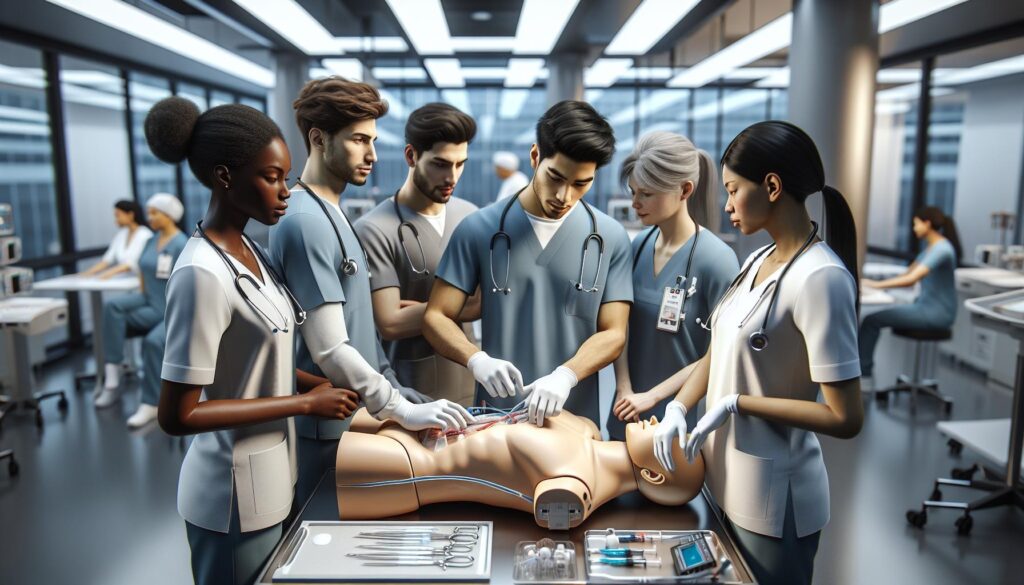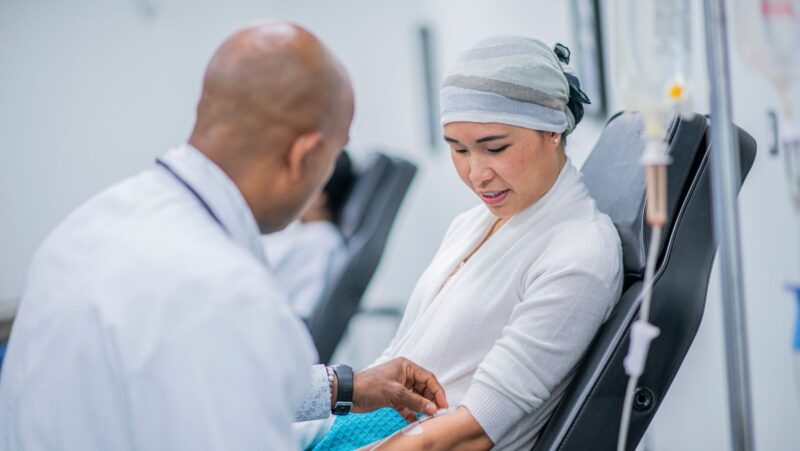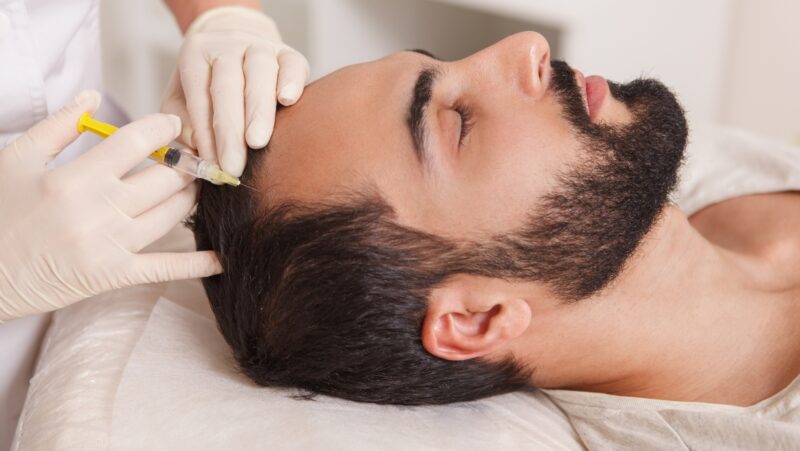
Many students with health science degrees wonder if they can transition into nursing without starting their education from scratch. The good news is that a health science background can provide a solid foundation for pursuing a nursing career through accelerated programs or bridge pathways.
Healthcare professionals with health science degrees often find themselves well-positioned to become nurses thanks to their existing knowledge of anatomy, physiology and medical terminology. While a health science degree alone doesn’t qualify someone to practice nursing, it can significantly streamline the journey to becoming a registered nurse through specialized programs designed for degree holders from related fields.
Can i be a Nurse with a Health Science Degree
Health Science and Nursing degrees feature distinct educational pathways with specialized focuses. The core differences shape career outcomes while sharing foundational medical knowledge.
Key Differences Between the Programs
Health Science degrees emphasize broad healthcare systems knowledge with theoretical coursework. Nursing programs concentrate on direct patient care skills through clinical training. Here are the primary distinctions:
- Clinical Hours: Nursing requires 700+ supervised clinical hours while Health Science includes minimal hands-on training
- Licensing Requirements: Nursing demands NCLEX-RN exam completion whereas Health Science needs no license
- Career Focus: Health Science leads to administrative or research roles while Nursing centers on patient care
- Program Structure: Health Science offers flexible electives compared to Nursing’s rigid clinical requirements
- Skills Development: Nursing emphasizes practical medical procedures while Health Science builds analytical abilities
- Anatomy & Physiology (4-8 credit hours)
- Medical Terminology (3 credit hours)
- Chemistry (3-4 credit hours)
- Biology (4 credit hours)
- Healthcare Ethics (3 credit hours)
- Statistics (3 credit hours)
| Subject Area | Health Science Credits | Nursing Credits |
|---|---|---|
| Sciences | 30-35 | 35-40 |
| Clinical Skills | 0-10 | 40-45 |
| Healthcare Admin | 15-20 | 5-10 |
| General Education | 30-35 | 30-35 |
Pathways to Nursing With a Health Science Degree
Health science graduates have multiple paths to transition into nursing through specialized programs designed for degree holders from non-nursing backgrounds. These accelerated pathways build upon existing healthcare knowledge while providing essential nursing education.
Accelerated BSN Programs
Accelerated BSN programs enable health science graduates to earn a nursing degree in 12-18 months. These intensive programs focus on clinical skills training specific to nursing practice while recognizing prior coursework in areas like anatomy physiology microbiology. Prerequisites include:
- Minimum GPA of 3.0 in previous degree coursework
- Completion of science prerequisites with grades of B or higher
- Professional references from academic or healthcare settings
- Healthcare experience through volunteer work or employment
Key program features include:
- Full-time intensive coursework with no breaks between terms
- 700+ clinical hours in various healthcare settings
- NCLEX-RN preparation integrated throughout curriculum
- Financial aid options specifically for second-degree students
Direct Entry MSN Programs
Direct Entry MSN programs allow health science graduates to earn both a BSN and MSN in 2-3 years. Program components include:
Clinical Requirements:
| Component | Hours Required |
|---|---|
| Pre-licensure | 800-1000 |
| Graduate Clinical | 500-600 |
| Total Clinical | 1300-1600 |
Admission criteria:
- Bachelor’s degree with 3.2+ GPA
- Completion of graduate entrance exams (GRE/MAT)
- Healthcare experience documentation
- Science prerequisites completed within 5 years
- Clinical Nurse Leader
- Nurse Practitioner tracks
- Clinical Nurse Specialist
- Nurse Education
Requirements for Transitioning to Nursing
Health science graduates pursuing nursing careers must complete specific requirements to obtain nursing licensure. These requirements include prerequisite coursework, clinical training, and state-mandated examinations.
Prerequisites and Additional Coursework
Health science graduates transitioning to nursing programs complete essential prerequisite courses before beginning clinical training. Required courses include:
- Microbiology with lab (4 credits)
- Human Anatomy & Physiology I & II with labs (8 credits)
- Chemistry with lab (4 credits)
- Statistics (3 credits)
- Developmental Psychology (3 credits)
- Nutrition (3 credits)
Bridge programs evaluate transcripts from health science degrees to determine which prerequisites are already met. Students must maintain a minimum GPA of 3.0 in these prerequisite courses for admission to most accelerated nursing programs.
Clinical Hour Requirements
Clinical training forms the core component of nursing education transition programs. Required clinical hours include:
| Clinical Component | Required Hours |
|---|---|
| Medical-Surgical | 300 hours |
| Pediatrics | 150 hours |
| Obstetrics | 150 hours |
| Mental Health | 100 hours |
| Community Health | 100 hours |
| Critical Care | 100 hours |
| Total Minimum | 900 hours |
Students complete these clinical rotations under licensed nurse supervision in various healthcare settings. Clinical placements occur in hospitals, clinics, long-term care facilities, community health centers. Each rotation focuses on developing specific nursing competencies through hands-on patient care experience.
Time and Cost Considerations
The transition from a health science degree to nursing involves specific time commitments and financial investments that vary based on the chosen educational pathway.
Program Duration
Accelerated BSN programs for health science graduates take 12-18 months to complete compared to traditional 4-year BSN programs. Direct Entry MSN programs require 24-36 months of full-time study including both BSN and MSN coursework. Part-time options extend program duration by 6-12 months depending on course load and clinical rotation schedules.
Financial Investment
The total cost for accelerated nursing programs ranges from $40,000 to $70,000 at public institutions and $60,000 to $100,000 at private universities. Here’s a breakdown of typical expenses:
| Expense Category | Estimated Cost Range |
|---|---|
| Tuition (per semester) | $15,000 – $25,000 |
| Clinical Equipment | $1,200 – $2,000 |
| Books & Supplies | $2,000 – $3,500 |
| Lab Fees | $1,000 – $2,500 |
| NCLEX Prep Materials | $300 – $500 |
| Licensing Fees | $200 – $400 |
- Federal nursing student loans with fixed interest rates
- Nurse Corps Scholarship Program covering tuition and fees
- Hospital-sponsored tuition reimbursement programs
- State-specific nursing workforce development grants
- Merit-based institutional scholarships
Career Benefits of Having Both Degrees
Combining a health science degree with nursing credentials creates a versatile professional profile in healthcare. This dual qualification opens multiple career paths across clinical practice administrative roles.
Enhanced Job Opportunities
A health science background paired with nursing credentials expands employment options in specialized areas:
- Clinical Research Coordination positions at pharmaceutical companies medical device firms
- Healthcare Administration roles in hospitals clinics
- Public Health Program Management in government agencies non-profits
- Health Education positions at universities medical centers
- Quality Improvement roles focusing on patient safety outcomes
- Case Management positions coordinating patient care services
Competitive Advantage
The combination of degrees provides distinct benefits in the healthcare job market:
| Advantage Category | Impact on Career |
|---|---|
| Salary Potential | 15-25% higher earnings compared to single-degree holders |
| Promotion Rate | 2x faster advancement to leadership positions |
| Job Security | 95% employment rate within 6 months of graduation |
- Advanced understanding of healthcare systems operations
- Stronger analytical skills for evidence-based practice
- Deeper knowledge of population health management
- Enhanced ability to bridge clinical administrative responsibilities
- Superior project management capabilities in healthcare settings
- Increased qualification for specialized certification programs
Clinical Training and Financial Investment
A health science degree serves as a valuable stepping stone toward a nursing career through accelerated BSN or Direct Entry MSN programs. While the transition requires additional education clinical training and financial investment the combination of both degrees creates a powerful professional profile in healthcare.
The journey from health science to nursing offers numerous rewards including enhanced career opportunities higher earning potential and rapid advancement possibilities. With proper planning determination and commitment health science graduates can successfully navigate this career transition to become licensed registered nurses while leveraging their existing healthcare knowledge for future success.













